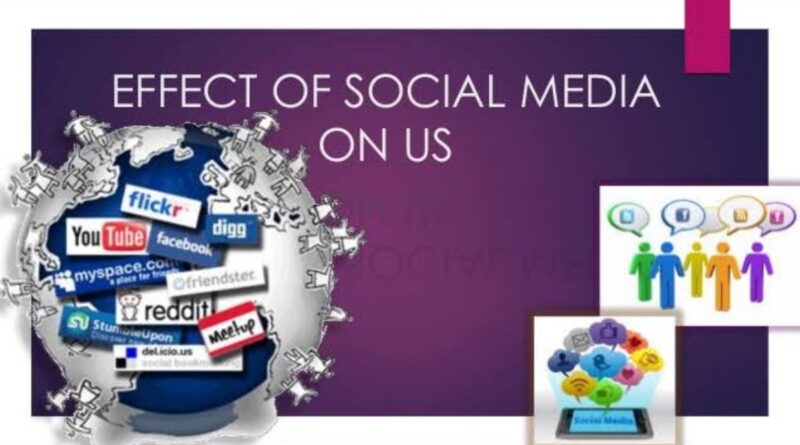Shocking Effects of Social Media on University Students
Social Media is one of the most important source through which people can easily get updated information and they have easy access to online global knowledge bank. Students could utilize the social media as endless source of learning.
There is a consensus among scholars that the positive effects of social media among university students appeared to be higher as compared to the negative impacts. However, the results of various research conducted showed that there are still very significantly damaging effects of social media on the overall performance of University students.
According to the University of Chicago, social media is more addicting than cigarettes. Does this mean you should steer clear of social media, or is there a way to use it without experiencing the negative side effects?

Social media is addicting; in fact, it’s more addicting than cigarettes. The addiction can lead to a variety of issues, including general anxiety, social anxiety, lack of self-confidence, and even obsessive-compulsive disorder.
Whether you realize it or not, social media affects the way you feel. A study, conducted strictly on Facebook, followed how one negative post affects others who read it. The study found that for each negative post made, the readers then created an average of 1.29 negative posts themselves.
Social media can cause what’s called social media anxiety disorder. This occurs when a person is unable to check their social media accounts often. For some, the anxiety can kick in after just a few minutes, while others don’t feel it until it’s been a few hours.
Either way, it causes unsettling feelings and can disrupt one’s normal life. Other ways that social media can cause anxiety comes down to comparisons. A study found that women in particular felt worse about themselves after interacting with someone more attractive than them on social media.
Studies show that users with “heavy use” of social media have between a 13% and 66% higher chance of being depressed. This could be due to the lack of “real-life” relationships users are making. The online relationship doesn’t have the same emotional satisfaction that you can get with real-life relationships.
Can Social Media Make You Lonely? Whether or not social media can make you lonely depends on who you ask. Some experts state that social media is actually a good way for those with anxiety not produced by social media to communicate with people in their life.
Communicating behind a screen can help a person with anxiety feel better and less lonely. On the other hand, those who don’t have anxiety and who overuse social media and neglect their “real-life” relationships could end up lonely. This is an even bigger deal for teens and college students who spend time monitoring their social media status rather than connecting with people in real-life.
The Non-health Related Risks Of Social Media
It’s not all physical or mental effects that can occur as a result of social media use. Children especially are also prone to:
- Bullying
- Exposure to inappropriate material
- Higher risk of identity theft or fraud
- Risk of becoming a victim of online pressures (grooming, kidnapping)
What Are The Physical Side Effects Of Social Media?
Users who spend too much time on social media sites tend to experience one or more of the following physical side effects:
- Back issues
- Neck issues
- Eye strain
- Obesity
- Risk of cardiovascular issues
What Is FOMO?
FOMO stands for the “fear of missing out.” It happens most often with social media, as users are able to see what others are doing or how glamorous other lives are, making a person feel like they are missing out on the fun.
SOCIAL MEDIA AND ACADEMICS
Does Social Media Affect Academic Performance?
There’s the obvious risk that social media use poses to academic performance based on the amount of time/focus people place on social media. Social media also affects a person’s use of the English language, with shorthand and acronyms used more often than proper grammar.
On the other hand, students who communicate via social media about school-related topics may do better because they have the ease of communication with their peers.
Is Social Media Important For Students?
Students can argue that social media is important for them, especially as they enter the University. Because social media is a large part of doing business in the “real world,” students can have an advantage when they leave school and start their first job. In other words, it provides the opportunity for interaction and unique learning.
How Many University Students Use Social Media?
A shocking 98% of university students use social media, according to a study conducted by Experian Simmons.
Which Social Media Platform Do University Students Use The Most?
The most popular social media apps used by university students today are Instagram and Snapchat. In fact, 78% of university students over the world use Snapchat today.
GETTING HELP FOR SOCIAL MEDIA USE
How Can You Use Social Media Less?
It might be easier said than done to quit your social media habit, but here are a few simple ways you can cut down your use:
- Set specific times of day that you can check your social media accounts
- Set a time limit that you can stay in your social media account
- Make your password something that is hard to remember (to make it harder to log in)
- Focus on your “real-life” obligations
- Turn your notifications off so that you don’t know when something new has occurred
How Much Time Should You Spend On Social Media A Day?
Experts suggest limiting your social media use to just 30 minutes per day for the least amount of mental health side effects as a result of too much social media use. As tempting as it may be, don’t let your real-world travels be eclipsed by your desire to share them on social media. This article from The Dumpster Dog Blog explains the issues that arise when people misuse social media while traveling.
How Can You Stay Safe On Social Media?
If you have a social media account, you put yourself at risk for a variety of issues, including identity theft. In order to avoid it, use some or all of the following tips:
- Use strong passwords
- Change your password at least once a month
- Set up two-factor authentication whenever possible
- Don’t share your passwords
- Don’t set up automatic login on your mobile phone or tablet
- Only friend people that you actually know
BOTTOM LINE
Social media can have a negative impact on your life. It’s important to understand your own limits and learn when to take a break.
Credit: Creditdonkey
For Advert Placement, Sponsorship, support, Article submission, suggestion, etc, Contact us: info@theabusites.com, +2349015751816 (WhatsApp)








